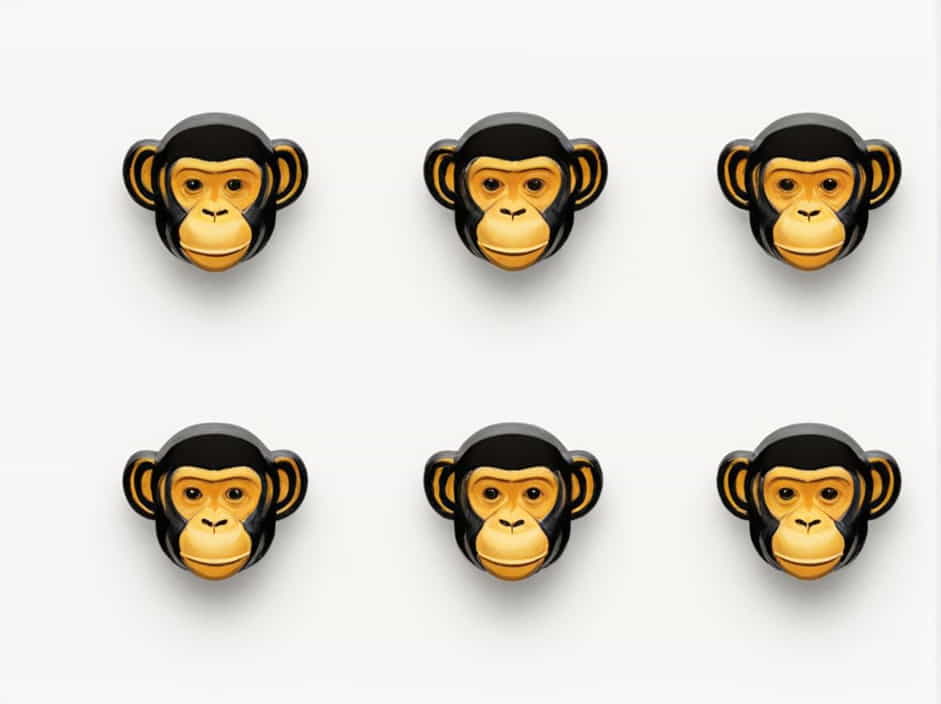Chimpanzees (Pan troglodytes) are intelligent and social primates closely related to humans. They have complex social structures, advanced problem-solving skills, and strong family bonds. One of the most common questions about these fascinating animals is: How long do chimpanzees live?
The lifespan of a chimpanzee varies based on environmental factors, habitat, diet, and medical care. In the wild, they have a shorter lifespan than those in captivity. This topic explores the average lifespan of chimpanzees, the factors that affect their longevity, and ways humans contribute to their survival.
Average Lifespan of a Chimpanzee
1. Lifespan in the Wild
Chimpanzees in the wild typically live between 30 and 40 years. However, some individuals have been known to survive into their mid-50s under ideal conditions.
Factors that affect the lifespan of wild chimpanzees include:
- Predation – Leopards and other predators sometimes target chimpanzees.
- Food availability – Scarcity of food can lead to malnutrition.
- Diseases – Wild chimpanzees are vulnerable to viral and bacterial infections.
- Conflicts – Rivalries within groups and territorial battles can lead to injuries.
2. Lifespan in Captivity
Chimpanzees in zoos or sanctuaries can live 50 to 60 years or more. Some individuals have even reached their 70s due to better care.
Reasons why captive chimpanzees live longer include:
- Regular veterinary care
- Consistent food supply
- Protection from predators
- Less exposure to human-related threats (hunting, habitat loss, etc.)
Factors That Affect Chimpanzee Lifespan
Several elements influence how long a chimpanzee can live. Some factors are biological, while others are environmental.
1. Genetics
Just like humans, some chimpanzees inherit stronger immune systems and better overall health. Genetic factors determine their resistance to diseases and ability to heal from injuries.
2. Diet and Nutrition
Chimpanzees are omnivores, meaning they eat both plants and animals. A balanced diet is crucial for their longevity.
Their diet includes:
- Fruits – A primary food source, rich in vitamins.
- Leaves and seeds – Provide fiber and nutrients.
- Insects and small animals – Supply protein and fats.
In the wild, food scarcity can impact their health, leading to malnutrition and a shorter lifespan. In captivity, they receive nutritionally balanced diets, helping them live longer.
3. Social Structure and Behavior
Chimpanzees live in complex social groups where relationships impact survival. Those in strong, cooperative communities have a better chance of living longer.
- Grooming behaviors reduce stress and remove parasites.
- Group protection helps against predators and rival groups.
- Learning from elders allows young chimps to develop survival skills.
Chimpanzees that lose their group often face higher risks of starvation and predation.
4. Predators and Natural Threats
In the wild, chimpanzees are prey for leopards, crocodiles, and large snakes. Even though they live in groups, isolated or injured individuals are more vulnerable.
Chimpanzees are also at risk from environmental threats, such as:
- Droughts – Reducing food and water supply.
- Forest fires – Destroying habitats and resources.
5. Human Impact
Human activities significantly affect chimpanzee survival and lifespan. The biggest threats include:
A. Habitat Destruction
- Deforestation reduces their living space and food sources.
- Urban expansion forces chimpanzees into human areas, increasing conflict.
B. Poaching and Illegal Wildlife Trade
- Some chimpanzees are hunted for bushmeat, reducing wild populations.
- Infant chimps are often captured for the illegal pet trade, leading to shorter lives in captivity.
C. Disease Transmission from Humans
- Chimpanzees share 98.7% of their DNA with humans, making them susceptible to human diseases like flu and respiratory infections.
- Even minor human illnesses can wipe out entire chimpanzee communities.
Chimpanzees with the Longest Lifespans
Some chimpanzees have lived well beyond the average lifespan, especially in sanctuaries and zoos. Here are a few notable cases:
1. Little Mama (Approx. 79 years old)
One of the oldest known chimpanzees, Little Mama, lived at Lion Country Safari in Florida. Experts estimated her age to be around 79 years before she passed away in 2017.
2. Gregoire (66 years old)
Gregoire, a famous chimpanzee from Congo, lived to be 66 years old. He spent most of his life at the Jane Goodall Institute’s sanctuary.
3. Cheeta (Reported 80s-90s)
Cheeta, a chimpanzee famous for starring in Tarzan movies, was claimed to be in his 80s or 90s. However, his exact age was debated.
How Can We Help Chimpanzees Live Longer?
Several conservation efforts aim to protect chimpanzees and extend their lifespan. Here’s how we can help:
1. Support Conservation Organizations
Groups like the Jane Goodall Institute, World Wildlife Fund (WWF), and Chimpanzee Conservation Center work to:
- Protect wild habitats.
- Rescue and rehabilitate orphaned chimpanzees.
- Prevent poaching and illegal wildlife trade.
2. Reduce Deforestation and Habitat Destruction
- Avoid buying products that contribute to deforestation (such as palm oil).
- Support eco-friendly companies that use sustainable resources.
3. Promote Ethical Tourism
- Visit sanctuaries that focus on rescue and rehabilitation.
- Avoid places that offer chimpanzee performances or petting experiences.
4. Raise Awareness
- Educate others about chimpanzee conservation.
- Share information about how human actions impact wildlife.
Fun Facts About Chimpanzees
- Chimpanzees share almost 99% of their DNA with humans, making them one of our closest relatives.
- They use tools like sticks to extract termites or leaves as drinking sponges.
- Wild chimpanzees can recognize their family members even after years of separation.
- Chimpanzees laugh when they are tickled or playing with others.
- They can live in groups called “troops”, consisting of 30 to 100 members.
The lifespan of a chimpanzee depends on several factors, including their habitat, diet, genetics, and threats from humans. While wild chimpanzees live 30-40 years, those in captivity can reach 50-70 years with proper care.
Protecting chimpanzees from habitat loss, poaching, and human diseases is essential for ensuring their survival. By supporting conservation efforts and spreading awareness, we can help these incredible primates live longer and thrive in the wild.
